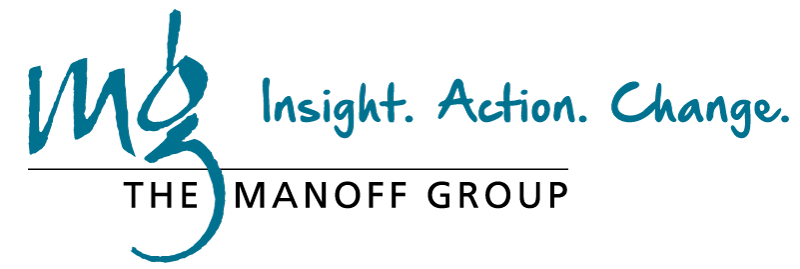 Behavior Profile: Teachers Promote a Culture of Respect
Behavior Profile: Teachers Promote a Culture of Respect| Democracy and Governance Goal: Reduce school-related gender-based violence | ||
|
Teachers promote a culture of respect for human rights, diversity (including gender, sexual orientation, disabilities/differently-abled, etc.) and inclusion % of school community members who believe teachers respect the human rights of all people regardless of gender, sexual orientation, disability, or other characteristics
|
Behavior Analysis |
Strategy | ||
|---|---|---|---|
BEHAVIOR AND STEPSWhat steps are needed to practice this behavior?Teachers promote a culture of respect for human rights, diversity (including gender, sexual orientation, disabilities/differently-abled, etc.) and inclusion
|
FACTORSWhat factors may prevent or support practice of this behavior?StructuralAccessibility: Teachers can promote a culture of respect because of the existence of numerous, comprehensive policies that espouse ideals of respect, diversity and inclusion. Accessibility: Teachers cannot promote a culture of respect because dysfunctional school management systems and school policies exacerbate an environment that is non-conducive to a culture of respect, school order, and social cohesion. Service Provider Competencies: Teachers cannot promote a culture of respect because school administrators do not manage parent expectations or differences between the teachers’ beliefs and those of the learners Service Provider Competencies: Teachers cannot promote a culture of respect because school administrators are not held accountable for a culture of respect and they emphasize operational and procedural aspects over respect, human rights, diversity, and inclusion InternalAttitudes and Beliefs: Teachers do not promote a culture of respect because they believe their role is just to transmit knowledge and information. Attitudes and Beliefs: Teachers do not promote a culture of respect because they feel a need to be seen as the epicenter of power -- they believe coercion can bring conformity and see respect as something they are owed and not something they must also give. Self-Efficacy: Teachers do not promote a culture of respect because they feel they do not have the required skills to handle the psychosocial barriers that learners bring into the classroom as a result of, for example, negative family and community influences. Knowledge: Teachers do not promote a culture of respect because they need professional development and support to grapple with their own identities and their understandings of what is normative to become active agents in working towards the inclusion of diverse learners (e.g., sexual and gender diversity, disability). Skills: Teachers do not promote a culture of respect because they do not have classroom management skills needed to create a collaborative atmosphere, respond to learners' needs, mediate between students, etc. |
SUPPORTING ACTORS AND ACTIONSWho must support the practice of this behavior, and what actions must they take?InstitutionalDistrict Education Department: Lead the process of orienting educators on Codes of Conduct for Educators and relevant laws and policies related to SRGBV. Circuit Manager: Conduct regular guidance and monitoring of policy implementation in schools School-based Support Teams (SBSTs): Provide information and guide/mentor teachers to respect others human rights and practice inclusion and diversity. School Governing Bodies (SGBs): Orient teachers, parents and learners on the revised policies, codes of conduct and disciplinary procedures. School Governing Bodies (SGBs): Revise, implement and monitor the School Code of Conduct, policies and disciplinary procedures. Department of Basic Education (DBE): Collaborate with Disabled People organizations to provide information and guidance to teachers to improve the inclusion of disabled learners Principals' Association: Support, monitor, and enforce principals' implementation of human rights, diversity and inclusion in schools Unions: Facilitate members' willingness to engage and promote transformation in schools HouseholdParents/Guardians: Advocate with other parents on human rights, respect, diversity, etc. within the school community |
POSSIBLE PROGRAM STRATEGIESWhat strategies will best focus our efforts based on this analysis?Strategy requires Communication Support Enabling EnvironmentPartnerships and Networks: Provide a platform for education units and others to meet and dialogue with teachers to share information sharing and provide teachers with needed support Partnerships and Networks: Support Education Department in prioritizing human rights, diversity, inclusion, and related issues in the appropriate forums, e.g. principals' association - as a standing agenda item Partnerships and Networks: Monitor and provide feedback on alignment and implementation (gaps and challenges) of School Codes of Conduct, disciplinary procedures, guidelines to the key education departments. Partnerships and Networks: Engage Unions in support of project ideals and activities Systems, Products and ServicesQuality Improvement: Host orientation workshops with the Education Department on national policies Quality Improvement: Hold regular, structured follow-up through School Leadership on National School Safety Framework implementation. Demand and UseAdvocacy: Advocate for ongoing refresher courses on diversity, human rights, classroom management (order, behavior, sensitivity, relations, communication), etc. for teachers. Advocacy: Engage provincial and district level education officers to guide and monitor policy implementation and resourcing of activities/interventions, e.g. curriculum, professional development, teacher support, infrastructure, etc. Communication: Conduct workshops and periodic engagement to create awareness and understanding of human rights, GBV, sexual orientation, diversity and inclusion Collective Engagement: Mobilise parent engagement in support for interventions Skills Building: With the Education Department, co-host workshops for schools on the National School Safety Framework and relevant content (e.g., restorative practices/restorative justice Skills Building: Provide information using best practice case studies, tools and relevant resources (handouts) and guide/mentor the School Based Support Teams to develop and implement a mentorship guide and recruit model/exemplary teachers to serve as peer mentors to teachers. |

 The Manoff Group was acquired by JSI in 2022.
The Manoff Group was acquired by JSI in 2022.